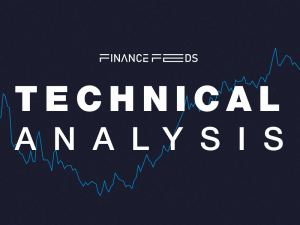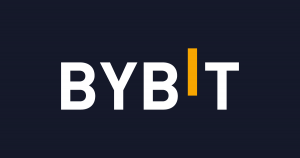How easy is your tech? EasyTech speaks to FinanceFeeds about full brokerage solutions
“It is imperative these days that brokerages do not remain too reliant on legacy systems or an affiliate-based model. Brokerages should look at using SaaS solutions instead of paying volume fees and having their entire intellectual property hosted on someone else’s system which makes it impossible to scale or value their business” says EasyTech CEO Yuri Hefetz

Although the retail FX industry can now well and truly be considered mature and highly developed, there are really still two ways to operate a brokerage, those being to invest a substantial sum and build a proprietary trading infrastructure from the ground up and support it in house, or to take a Software as a Service (SaaS) solution from a solutions provider specifically dedicated to the FX industry.
Indeed, over the past few years there have been some newcomers to the third party solutions sector, however choice has been limited to a large extent due to the lack of a comprehensive, technology led provider which can support the needs of a brokerage to full extent.
Today, FinanceFeeds spoke to Yuri Hefetz, CEO of EasyTech in order to look closely at the needs of brokerages from the perspective of a company that develops a dedicated CRM solution and trading platform for retail brokerages globally.
One of the very noticeable moot points within the FX industry’s turnkey solutions sector has been the distinct affiliate marketing background in which many of such firms have their roots, when in reality the affiliate marketing model is completely at odds with providing customer relationship, marketing and trading solutions to brokers.

In many other industry sectors, turnkey solutions and customer management software is provided as an SaaS, therefore ensuring no risk of the misappropriation of intellectual property.
EasyTech, a software company which considers its ethos to be absolutely part of the modern FinTech fraternity, has looked closely at what brokerages need in order to empower their businesses, reduce cost and trading risk, and ensure that their client base is maximized to full extent without handing their customer base, which is their most valuable asset to competitors.
The company is also one of the first batches of commercial CRM providers for FX industry. At the earlier stage, there were almost no CRM products tailored for the electronic trading business. In most cases, brokers either chose to purchase generic CRM solutions such as Salesforce and Microsoft Dynamics, or spend lots of money to develop their own BO system. Working with some of the chancers on the islands was never a viable option, as they often view CRM business as a means of collecting (and potentially misappropriating) data.
Nevertheless, the weaknesses of these two methods cannot be ignored, largely around the long development cycle and enormous cost if the brokers decide to develop by themselves and also the specific industrial needs which can hardly be satisfied if brokers choose the very generic CRM solutions.
With professional trading systems and self-directed analytical traders and portfolio managers becoming far more a part of the entire infrastructure of the FX industry, a simple MetaTrader 4 white label license to satisfy firms using Expert Advisors will likely no longer be enough, and a fully adaptable, end to end, focused solution with customizable front end and full integration is likely to be the solution of choice going forward.
Mr Hefetz explained “It is imperative these days that brokerages do not remain too reliant on legacy systems such as MetaTrader and its affiliate-based model.”
“Brokerages should consider that instead of paying volume fees and having their entire intellectual property hosted on someone else’s system thus making it impossible to scale or value their business, it is more appropriate to have a proprietary CRM which is designed, developed and tested all of the FinTech industry in mind, not just retail FX firms. Everything related to managing and operating a brokerage should be designed by experienced technology experts from major forex brokers and industry professionals which must result in a highly secure, customizable and full stack CRM” he said.
“Our purpose at EasyTech was to create a one-stop shop solutions for brokerages, offering highly advanced technologies for all types of fintech enterprise, including CRM, a bespoke trading platform, website development, marketing tools, risk management and BI systems. This set of technologies has been developed and integrated by professional leaders with many years of experience in the FX and sotware development sectors of the financial services industry” he said.
Mr Hefetz considers that a fully integrated CRM, trading platform and service and support solution is vital to small to medium sized brokers which want to take ownership of their business and client base, and not be subservient to providers which effectively view brokers as white label parnters or introducers.
He explained “Modern brokerages are now at a crossroads, in that they have to provide high quality execution, they have to know the trading behavior of their clients, and they have to be able to respond with knowledge and full understanding of client requirements including tapping into multi-asset product ranges, ensure risk is being conducted correctly and have real time reporting among many other considerations.”
“Being able to reach out to existing clients and previous clients is vital in today’s market in which competition between so many firms that offer identical trading environments has driven margins to a very tight level. We therefore have developed our solution to enable brokers to streamline their client base, ensure they maximize their customer engagement by providing asset classes that are comprehensive and not based on what is offered by a white label provider. We also have a fully comprehensive Marketing Automation Integration system to improve the efficiency of brokerages” he said.
“Data Analysis and Marketing Automation have to this day been our on-going research projects. Apparently, western brokers much prefer digital marketing, and some retail FX and CFD companies such as Plus500 have achieved extraordinary results in that particular discipline. It’s a compelling necessity for brokers to lower customer acquisition costs and improve conversion rates as much as possible” said Mr Hefetz.
Indeed, many professional services firms have become intrinsically involved in the business of FX brokerages, largely because of the ‘packaged’ nature in which some jurisdictions for retail trading has been sold to many firms. It is certainly the case that 10 years ago when it was commonplace for management consultancies and law firms to promote turnkey solutions for any person from literally anywhere in the world, at the time many of which had never run a brokerage before, to simply pay a small fee, and have a fully licensed up-and-running FX brokerage.
The mere inkling that these firms are now looking at new regulatory implementations which may impact their business – for that read the MiFID II and leverage restriction-driven strangulation of smaller firms, means that a change is on the way and it is therefore the belief of many FX industry executives that FinanceFeeds has spoken to that there will be a major consolidation of retail firms very soon.
Therefore, protection of your brokerage business against any potential consolidation due to the sheer number of almost identical offerings with absolutely no intellectual property of their own and little differentiation between themselves is one of the most vital considerations for survival and scalability.
Today, how an electronic brokerage structures itself and how it provides integration between market, liquidity source, regulators and its customer base is absolutely paramount.









